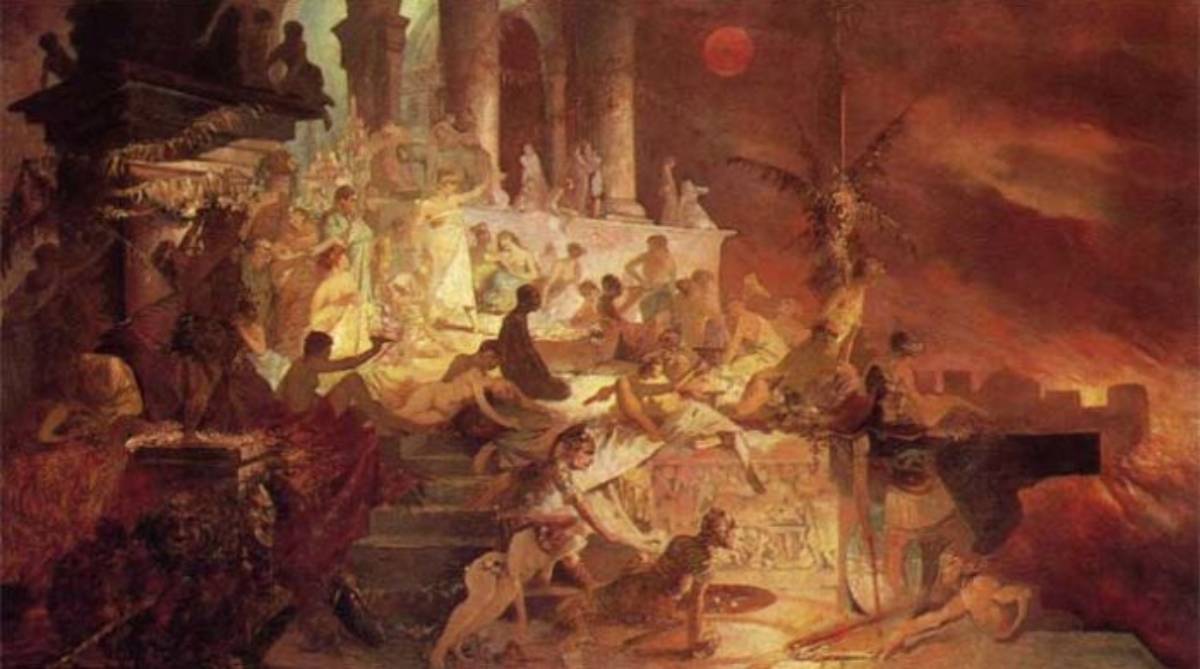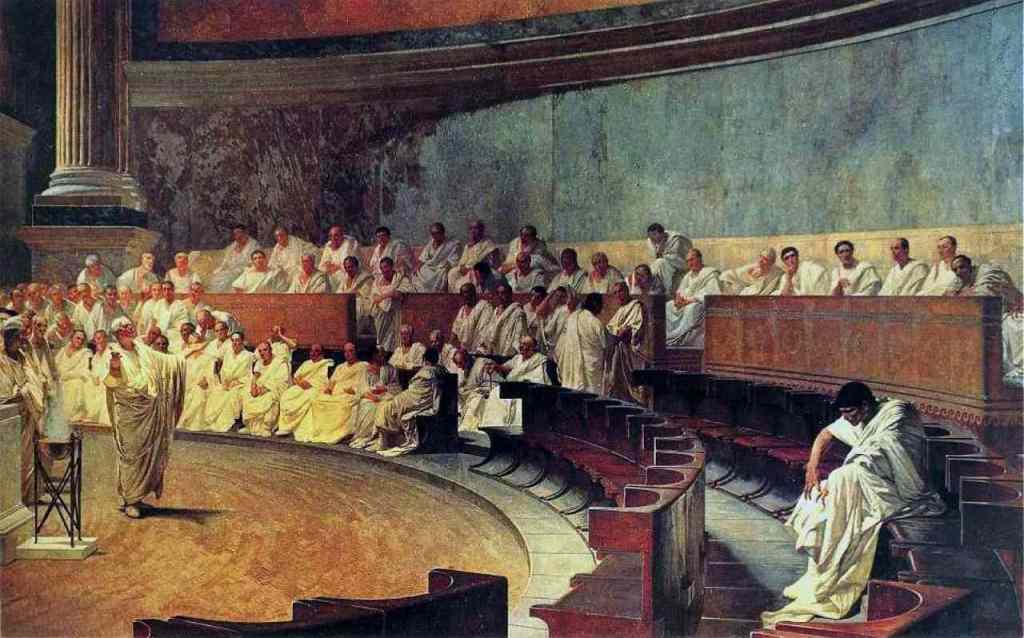The political landscape of ancient Rome was forever changed by a dramatic conspiracy that threatened to tear apart the very fabric of the Republic. In 63 BCE, a plot emerged that would become one of history’s most infamous attempted coups – the Catilinarian Conspiracy.

Cicero denouncing Catiline in the Roman Senate. Source: Malwar Wick on Books
At the heart of this treasonous scheme was Lucius Sergius Catilina, better known as Catiline, whose ambitious plot to overthrow the Roman Republic emerged from a perfect storm of social unrest, economic hardship, and political tension. The lower classes, burdened by crushing debt and social inequality, became the kindling for Catiline’s revolutionary fire.

Life in Ancient Rome during the First Century. Source: Brewminate
Standing against this tide of insurrection was Marcus Tullius Cicero, Rome’s consul and one of history’s greatest orators. Through his legendary series of speeches known as the Catilinarian Orations, Cicero exposed the conspiracy to the Senate, painting a vivid picture of the violence and chaos Catiline intended to unleash upon Rome.

Cicero delivering one of his famous orations. Source: Digital Maps of the Ancient World
The conspiracy’s unraveling was swift and dramatic. As evidence mounted and conspirators were arrested, the plot’s full scope became clear – plans for widespread assassination, arson, and the complete overthrow of the established order. The execution of key conspirators marked a turning point in Roman history, though Catiline himself met his end in battle, choosing to die sword in hand rather than face Roman justice.
The aftermath of the Catilinarian Conspiracy left an indelible mark on Roman society. While Cicero was initially hailed as the savior of the Republic, the political tensions unleashed by these events contributed to the eventual fall of the Republican system. The conspiracy serves as a stark reminder of how fragile political institutions can be when faced with the perfect storm of social unrest, economic disparity, and ambitious individuals willing to exploit these conditions for their own gain.
References:
Politics in Ancient Rome – link
The Roman Empire in the First Century – link
Republican Rome – link
Categories: Ancient Civilizations, History, Military History, Political History, War History
Tags: Ancient Rome, Catiline, Cicero, Classical History, Political Conspiracy, Roman History, Roman Republic
Religion: Roman Paganism
Country of Origin: Italy, Roman Empire
Topic: Historical Events
Ethnicity: Roman


